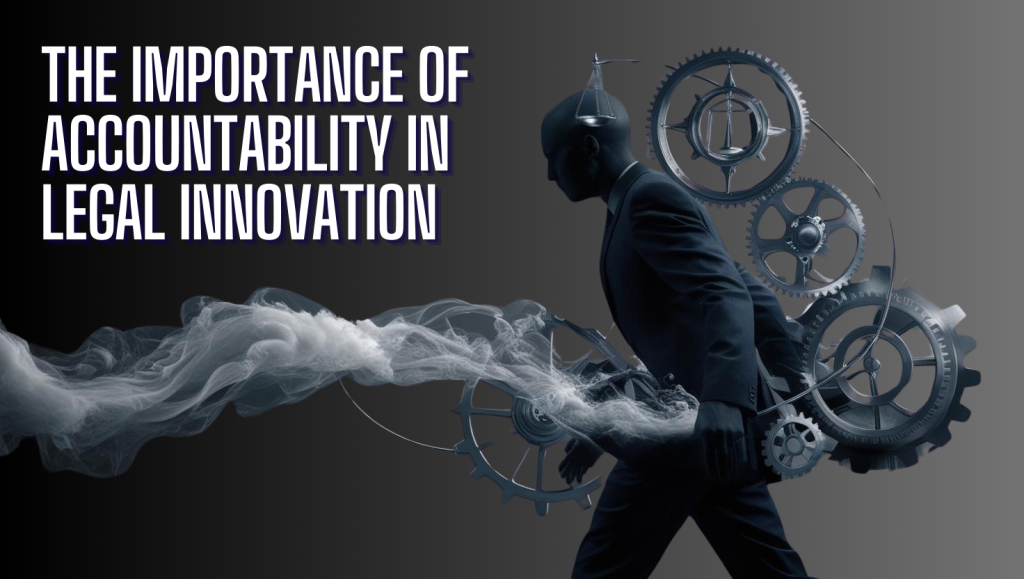The Importance of Accountability in Legal Innovation: A Story of Ethics, Technology, and Trust

Imagine a bustling law firm, once overwhelmed by mountains of paperwork and manual research. With the advent of AI and automation, tasks that once took hours are now completed in minutes. Lawyers, liberated from routine work, can focus on strategic counsel and client relationships. The firm experiences unprecedented growth and efficiency.
But as the firm grows, something strange happens. The more they rely on AI, the less they question its decisions. “The machine’s analysis must be correct,” they think. After all, it’s powered by the latest technology. But one day, the machine makes an error—a subtle one, but enough to cause a significant problem for a client. An automated clause, once considered benign, leads to a costly lawsuit that could have been avoided with human oversight.
79% of law firms have adopted AI tools, a huge jump from 19% in 2023. Clients are increasingly expecting it, with 70% of clients expressing a preference for firms using AI (Clio – Cloud-Based Legal Technology).
AI can reduce legal operational costs by 35% and free up lawyers for higher-value tasks, making services more affordable while boosting profitability (DocuEase).
This is the delicate balance between innovation and accountability. The rapid rise of AI and automation in the legal industry has brought about incredible advances, allowing lawyers to work faster, smarter, and more efficiently than ever before. But with these powerful tools comes an even greater responsibility to uphold the core values that have always defined the legal profession: integrity, ethics, and trust.
76% of legal professionals say AI has helped them improve efficiency and productivity in their firms (Thomson Reuters Legal Solutions).
Accountability in the legal world isn’t just a nice-to-have—it’s essential. Lawyers have always been more than just technical experts; they’ve been trusted advisors who navigate complex systems and offer sound judgment. As legal technology evolves, so too must the role of the lawyer. The tools at their disposal—whether AI or automation—should never replace human expertise but should enhance it.
Let’s return to that law firm for a moment. After the error, the firm pauses to reassess their reliance on technology. They put in place checks and balances, ensuring that every AI-generated decision undergoes careful human review. They establish guidelines that ensure every tool they use serves their clients, not just their bottom line. The mistake becomes a turning point, a reminder that while technology can optimize processes, it can never replace the wisdom, accountability, and ethical judgment that lawyers bring to the table.
In this new age of legal innovation, we must remember that technology is a tool, not a substitute for human judgment. It’s up to us—the lawyers, the professionals, the stewards of the law—to ensure that these tools are used with the utmost integrity. Accountability isn’t just about avoiding errors; it’s about maintaining the trust that has been the foundation of legal systems for centuries.
The future of law is bright with innovation, but it must be built on a strong ethical framework. With the right balance of technology and accountability, we can ensure that the legal profession remains a pillar of trust, offering wisdom and guidance, now and always.


Post a Reply